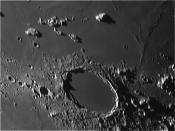As literary critics, Plato and Aristotle disagree profoundly about the value of art in human society. Plato attempts to strip artists of the power and prominence they enjoy in his society, while Aristotle tries to develop a method of inquiry to determine the merits of an individual work of art. It is interesting to note that these two disparate notions of art are based upon the same fundamental assumption: that art is a form of mimesis, of imitation. Both philosophers are concerned with the artist?s ability to have significant impact on others. It is the imitative function of art which promotes disdain in Plato and curiosity in Aristotle. Examining distinctions between the two arguments by their different conceptions of the reality that art professes to imitate, the process of imitation, and the inherent strengths and weaknesses of imitation as a form of artistic expression may lead to understanding how these conflicting views of art could develop from a seemingly similar premise.
Both philosophers hold radically different notions of reality. The assumptions each man makes about truth, knowledge, and goodness directly affect their specific ideas about art. For Plato, art imitates a world that is already far removed from authentic reality, from Truth. Truth exists only in intellectual abstraction, that is, paradoxically, more real than concrete objects. The universal essence, the Form of a thing, is more real and thus more important than its physical substance. The physical world, the world of appearances experienced through the senses, does not harbor reality. This tangible world is an imperfect reflection of the universal world of Forms. Human observations based on these reflections are, therefore, highly suspect. At best, the tangible fruit of any human labor is "an indistinct expression of truth" (Republic X, 22). Because knowledge of truth and knowledge of...



A great Comparison
A great Comparison between Aristotle and Plato' s description about imitation on art and tragedy. It helped me a lot for my midterm exam.
1 out of 1 people found this comment useful.